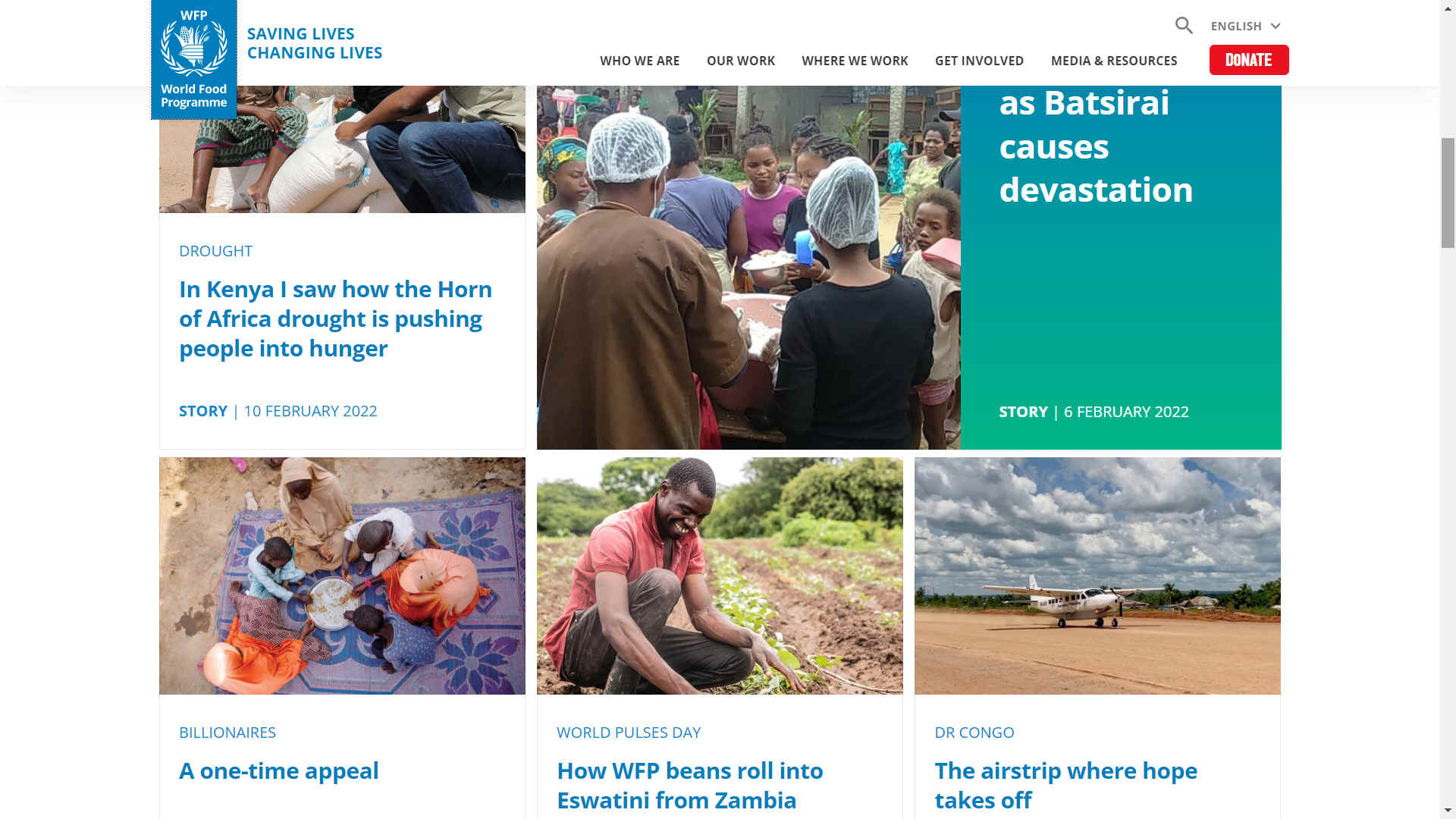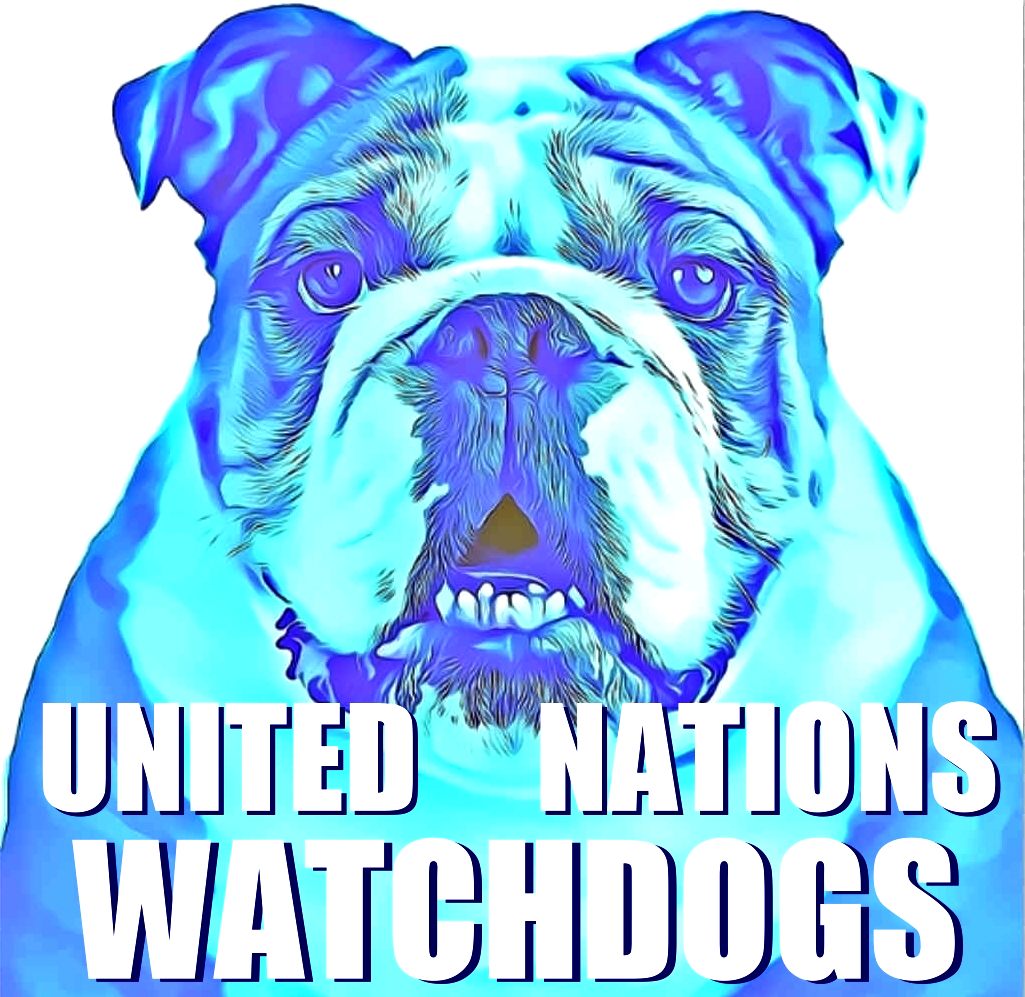The World Food Programme (WFP) is the food-assistance branch of the United Nations. It is the world's largest humanitarian organization focused on hunger and food security, and the largest provider of
school meals. Founded in 1961, it is headquartered in Rome and has offices in 80 countries. As of 2020, it served 115.5 million people in 80-plus countries, the largest since 2012.
In addition to emergency food relief, WFP offers technical assistance and development aid, such as building capacity for emergency preparedness and response, managing supply chains and logistics, promoting social safety programs, and strengthening resilience against climate change. The agency is also a major provider of direct cash assistance and medical supplies, and provides passenger services for humanitarian workers.
WFP is an executive member of the United Nations Sustainable Development Group, a consortium of UN entities that aims to fulfil the 17
Sustainable Development Goals (SDG), with a priority on achieving SDG 2 for "zero hunger" by 2030.
The World Food Programme was awarded the Nobel Peace Prize in 2020 for its efforts to provide food assistance in areas of conflict, and to prevent the use of food as a weapon of war and
conflict, which it will become if we are not very careful.
ORGANIZATION
WFP is governed by an executive board which consists of representatives from 36 member states, and provides intergovernmental support, direction and supervision of WFP's activities. The European Union is a permanent observer in WFP and, as a major donor, participates in the work of its executive
board. WFP is headed by an executive director, who is appointed jointly by the
UN Secretary-General and the director-general of the
Food and Agriculture Organization (FAO) of the United Nations. The executive director is appointed for fixed five-year terms and is responsible for the administration of the organization as well as the implementation of its programmes, projects and other
activities. David Beasley, previously Governor of the U.S. state of South Carolina, was appointed to the role in March 2017. He heads the WFP secretariat, which is headquartered in Rome.
In October 2020, WFP had 19,660 staff.
LIST OF EXECUTIVE DIRECTORS
Since 1992, all executive directors have been American. The following is a chronological list of those who have served as executive director of the World Food Programme:
Addeke Hendrik Boerma ( Netherlands) (May 1962 – December 1967)
Sushil K. Dev ( India) (January 1968 – August 1968) (acting)
Franciso Aquino ( El Salvador) (July 1968 – May 1976)
Thomas C. M. Robinson ( United States) (May 1976 – June 1977 acting; July 1977 – September 1977)
Garson N. Vogel ( Canada) (October 1977 – April 1981)
Bernardo de Azevedo Brito ( Brazil) (May 1981 – February 1982) (acting)
Juan Felipe Yriart ( Uruguay) (February 1982 – April 1982) (acting)
James Ingram ( Australia) (April 1982 – April 1992)
Catherine Bertini ( United States) (April 1992 – April 2002)
James T. Morris ( United States) (April 2002 – April 2007)
Josette Sheeran ( United States) (April 2007 – April 2012)
Ertharin Cousin ( United States) (April 2012 – April 2017)
David Beasley ( United States) (April 2017 – present)
CLIMATE CHANGE
WFP works with governments and humanitarian partners in responding to increasing number of climate-related disasters. It also takes pre-emptive action to reduce the number of people needing humanitarian assistance. WFP used Forecast-based Financing to provide cash to vulnerable families, allowing them to buy food, reinforce their homes and take other steps to build resilience ahead of torrential rains in Bangladesh in July 2019. WFP's response to Hurricane Dorian in the Bahamas in September 2019 was assisted by a regional office in Barbados, which had been set up the previous year to enable better disaster preparedness and response. In advance of Hurricane Dorian, WFP deployed technical experts in food security, logistics and emergency telecommunication, to support a rapid needs assessment. Assessment teams also conducted an initial aerial reconnaissance mission, with the aim of putting teams on the ground as soon as possible.
NUTRITION
WFP has broadened its focus in recent years from emergency interventions to addressing all forms of malnutrition including vitamin and mineral deficiencies, and overweight and obesity. WFP addresses malnutrition from the earliest stages through programmes targeting the first 1,000 days from conception to a child's second birthday. It provides access to healthy diets, targeting young children, pregnant and breastfeeding women and people living with HIV and tuberculosis. WFP works with governments, other UN agencies, NGOs and the private sector, supporting nutrition interventions, policies and programmes that include nutritious school meals and food fortification.
SCHOOL MEALS
School meals encourage parents in vulnerable families to send their children to school, rather than work. They have proved highly beneficial in areas including education and gender equality, health and nutrition, social protection, local economies and agriculture. WFP works with partners to ensure school feeding is part of integrated school health and nutrition programmes, which include services such as malaria control, menstrual hygiene and guidance on sanitation and hygiene.
CAPACITY BUILDING
WFP places a strong emphasis on transferring skills and knowledge to a range of public, private and civil society actors who are pivotal to sustaining national policies and programmes. The goal is to build governments' and other partners' capacities to manage disaster risk and improve food security, while also investing in early warning and preparedness systems for climate and other threats. In the most climate disaster-prone provinces of the Philippines for example, WFP is providing emergency response training and equipment to local government units, and helping set up Automated Weather Stations.
PARTNERSHIPS
WFP works with thousands of partners, including governments, private sector, UN agencies, international finance groups, academia, NGOs and other civil society groups. The more than 1,000 NGOs it collaborates with around the world forms its biggest group of partners. WFP places strong emphasis on its partnership with the other two Rome-Based agencies – the Food and Agriculture Organization of the United Nations and the International Fund for Agricultural Development. The agencies reaffirmed their joint efforts to end global hunger, particularly amid the impacts of the COVID-19 pandemic, during a joint meeting of their governing bodies in October 2020. In the United States, Washington, D.C.-based 501(c)(3) organization World Food Program USA supports the WFP. The American organisation frequently donates to the WFP, though the two are separate entities for taxation purposes.
|
|
GLOBAL
WARMING Is
causing desertification, creating deserts from good
agricultural
land, threatening food
security. Once the food runs out, apart from eating each other as a
last resort, wars will break out, upsetting world peace, and potentially
leading the World
War Three. WFP works with governments and humanitarian partners in responding to increasing number of climate-related disasters. It also takes pre-emptive action to reduce the number of people needing humanitarian assistance. WFP used Forecast-based Financing to provide cash to vulnerable families, allowing them to buy food, reinforce their homes and take other steps to build resilience ahead of torrential rains in Bangladesh in July 2019.
WFP's response to Hurricane Dorian in the Bahamas in September 2019 was assisted by a regional office in Barbados, which had been set up the previous year to enable better disaster preparedness and response. In advance of Hurricane Dorian, WFP deployed technical experts in food security, logistics and emergency telecommunication, to support a rapid needs assessment. Assessment teams also conducted an initial aerial reconnaissance mission, with the aim of putting teams on the ground as soon as possible.
|


